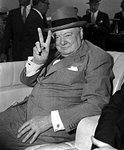A Tale of Two Flip-Floppers
By KARL ROVE
July 24, 2008
John McCain and Barack Obama have both changed positions in this campaign. That's OK. Voters understand that politicians can and, sometimes, should change their views. After all, voters do. Witness the wide swings in their answers to opinion polls.
But before accepting the changes, voters typically ask themselves three questions: Does the candidate admit he's shifting? What's the new information that altered his thinking? Does the change seem reasonable and not calculating?
Sen. McCain has changed his position on drilling for oil on the outer continental shelf. But because he explained this change by saying that $4-a-gallon gasoline caused him to re-evaluate his position, voters are likely to accept it. Of course, Mr. McCain doesn't explain why prices at the pump haven't also forced him to re-evaluate his opposition to drilling on 2000 acres in the 19.2-million-acre Arctic National Wildlife Refuge. But, then, what politician is always consistent?
Mr. McCain flip-flopped on the 2001 and 2003 tax cuts. He'd voted against them at the time, saying in 2001 that he'd "like to see more of this tax cut shared by working Americans." Now he supports their continuation because, he says, letting them expire would increase taxes and he opposes tax hikes. Besides, he recognizes that the tax cuts have helped the economy.
At least Mr. McCain fesses up to and explains his changes. Sen. Obama has shifted recently on public financing, free trade, Nafta, welfare reform, the D.C. gun ban, whether the Iranian Quds Force is a terrorist group, immunity for telecom companies participating in the Terrorist Surveillance Program, the status of Jerusalem, flag lapel pins, and disavowing Rev. Jeremiah Wright. And not only does he refuse to explain these flip-flops, he acts as if they never occurred.
Then there is Iraq. Throughout 2006 and early 2007, Mr. Obama pledged to remove all U.S. troops, even voting to immediately cut off funds for the troops while they were in combat. Then, in July 2007, he started talking about leaving a residual U.S. force, in Kuwait and elsewhere in the region, able to go back into Iraq if needed.
By October, he shifted again, pledging to station the residual U.S. troops inside Iraq with two "limited missions of protecting our diplomats and carrying out targeted strikes on al Qaeda."
Last week, writing in the New York Times, Mr. Obama changed again. He increased the missions his residual force would perform to three: "going after any remnants of al Qaeda in Mesopotamia, protecting American service members and, so long as the Iraqis make political progress, training Iraqi security forces." That's not all that different from what U.S. troops are doing now.
And just how many U.S. troops would Mr. Obama leave in Iraq? Colin Kahl, an Obama adviser on Iraq, has said the senator wants to have "perhaps 60,000-80,000 forces" in Iraq by December 2010. So much for withdrawing all combat troops.
It's dizzying. Yet, Mr. Obama acts as if he is a paradigm of consistency. He told a Georgia rally this month that "the people who say [I've been changing] apparently haven't been listening to me." In a PBS interview last week he said, "this notion that somehow we've had wild shifts in my positions is simply inaccurate."
Compounding all this is Mr. Obama's stubborn refusal to admit the surge was right and that he was wrong to oppose it. On MSNBC in January 2007, he said more U.S. troops would not "solve the sectarian violence there. In fact, I think it will do the reverse." Later that month he said at a Senate Foreign Relations Committee hearing that the new strategy would "not prove to be one that changes the dynamics significantly." In fact, the surge has done far more than its advocates hoped in a much shorter period.
Yet Mr. Obama told ABC's Terry Moran this week that even in retrospect, he would oppose the surge. He also told CBS's Katie Couric that he had "no idea what would have happened" without the new strategy. And he still declares, in the New York Times last week, "The same factors that led me to oppose the surge still hold true." Given all that has happened, it's hard to understand how Mr. Obama can say, as he did Tuesday in a story on NBC Nightly News, that "I don't have doubts about my ability to apply sound judgment to the major national security problems that we face."
Americans have seen both candidates flip-flop. Mr. McCain at least has a record of being a gutsy leader willing to take unpopular stands who admits his shifts and explains the new information that caused them.
Mr. Obama has detached himself from past positions at record speed. And in doing so he runs the risk of being seen as a cynical politician, not an inspiring leader. If this happens, voters in large numbers may ask -- despite his rhetorical acrobatics -- if he is the change they've been waiting for.
Mr. Rove is a former senior adviser and deputy chief of staff to President George W. Bush.
Wednesday, July 23, 2008
Subscribe to:
Post Comments (Atom)

No comments:
Post a Comment